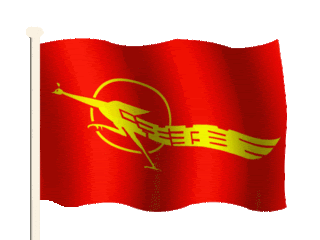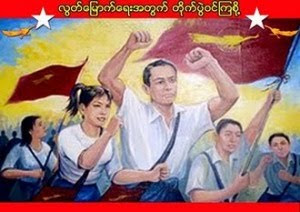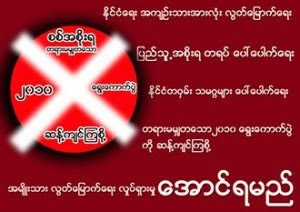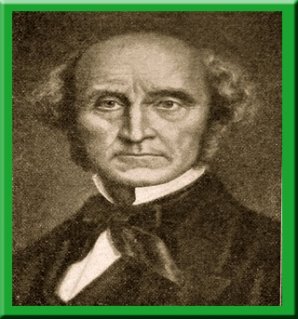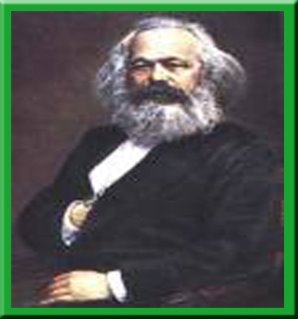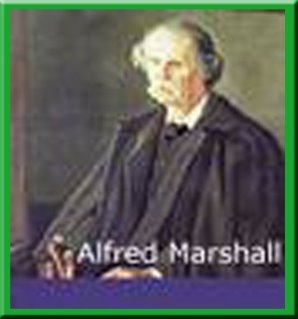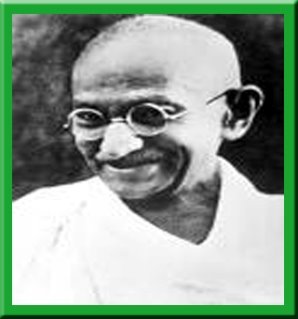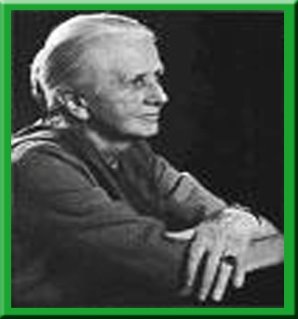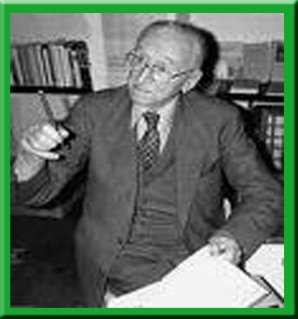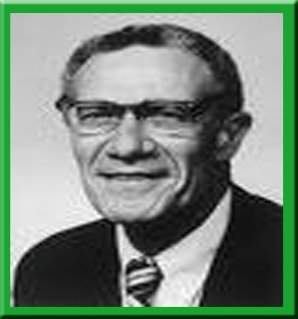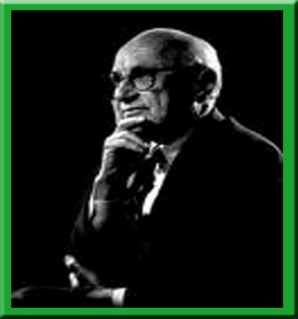as agents of change in the international order
With the processes of globalization, there has been much debate about the role to be played by an emerging global civil society. It fundamentally embraces transnational networks such as labour movements, anti-globalization movements and a multitude of non-state actors such as Amnesty International, Green Peace, etc. With the emergence of global media networks, these non-state actors and transnational networks have been influencing global policies and sociopolitical dynamics. In this essay, I would like to discuss about the emergence of non-states actors and transnational networks, agents of change in the international order and the role of non-state actors and transnational networks as agents of change in the international order.
Non- state actors and transnational networks
Although national governments are the most important actors, they are strongly constrained and influenced by a variety of non-state actors. Goldstein and Pevehouse (2006) grouped non-state actors in several categories such as sub-state actors, nongovernmental organizations (NGOs) and intergovernmental organizations (IGOs).(Goldstein, 2006:10)
Traditionally, sub-state actors operate below the state level, however, the actions of sub-state economic actors have been increasingly operating across state borders through transnational networks. Similarly, NGOs such as Green Peace, combine efforts through advocacy networks for their political, economic and humanitarian purposes. Moreover, IGOs such as United Nations, World Trade Organization and International Monetary Fund are influencing states' policies in economics and foreign affairs.
Furthermore, with the high speed of communication systems, groups of people who share beliefs in some form of social change formed social movements across the world. These movements are based on modern Information and communication technologies for coordinated actions among the groups despite of their physical separations. Keck and Sikkink (1998) identified a variety of factors involving in these networks as shared values, a common discourse and dense exchange of information and services. They also argued that people were bound together by these factors. (Keck & Sikkink, 1998) So transnational actors go beyond the the bound of nation states and become 'sovereignty-free' actors which embrace government institutions.
Labour and the anti- globalization movements are highly visible. Nowadays, workers are depending on organizations outside the producing countries to place pressure on corporations, host governments and global labour organizations, for example, the International Confederation of Free Trade Unions (ICFTU) and the International Labour Organizations (ILO). (Yanacopulos & Mohan, 2004: 431)
Similarly, the debt cancellation network of Jubilee 2000 campaign involved 100 organizational members and 70 national coalitions across the world. By operating at a global level, it successfully changed the political climate and placed the issue on the international agenda to force the lender governments to justify their positions if they took a stand against debt cancellation.
To evaluate whether these non-state actors and transnational networks represent agents of change or not, we need to explore the agents of change in the international order.
Agents of change in the international order
Formerly, the function of international order was just to protect the states as the providers of social goods to their own citizens. However, the function of international order has been changed by the processes of globalization and the situation is very complex. As Clark (2005) argued, the international order is facing a hybrid situation in which states share a host of responsibilities with both IGOs and a multiplicity of non-governmental and transnational actors. (Clark, 2005: 740) In fact, the Post- Cold War international order has been changed by the emergence of global civil society.
To seek to explore the tensions between state and non-state actors, levels of inequality and patterns of exclusion and questions of order and governance in the international order, Yanacopulos, Jordan and Rohozinski (2004) categorized the agents of change into three groups such as private financial institutions, social movements and the military. (Yanacopulos, Jordan & Rohozinski, 2004: 453)
Traditionally, control over currency and control over foreign trade are the two of the most fundamental attributes of sovereignty. However, with the emergence of Transnational corporations (TNCs) as private financial institutions, the governments have lost control of financial flows and intra-firm trade may occur with the relevant transfer price. As a result, these institutions are shaping the future of international order by increasing volatility.
Similarly, the changing characters of wars and the advancement of military technologies are shaping the international system by shifting security landscapes. After September 11 event, the military agent has been changed to new asymmetric actors against the terrorist organizations which are also based on global networks.
Moreover, the social movements are also shaping the international system by mobilizing groups across the globe. They embrace the government institutions and IGOs in the form of public demonstrations and protests propelling them into the public consciousness. In the next section, I would like to evaluate the role of these transnational networks as agents of change in the international order.
Non-states actors and transnational networks as agents of change
Traditionally, governments are known as having legal authority and control over military capabilities and economic resources, having high status, possessing specialist information and having access to communications. However, in a modern world, these capabilities can also be attributes of non-state actors and transnational networks. So it can be argued that there has a move in the international order from a state-centric to a pluralist model, in which governments and transnational actors interact with each other bilaterally and multilaterally.
Willets (2005) viewed international relations from orthodox view and pointed out that there is not a single international system of nearly 200 states, but a variety of policy domains, each involving their own distinct actors (Willetts, 2005: 442). In some cases, non-state actors and transnational networks are more specialist and central to their policy domains. For example, Amnesty International is involved in a range of policy questions for human rights and Green Peace is significant for environmental issues. Being as specialist groups, they can generate high status and enhance communication skills.
However, when the non-state actors engage with networks, the tension can be emerged between the sovereign and territorial organization of state power and the challenges posed to this by network forms of organizations. The anti-globalization movement in Prague in September 2000 was one of the examples of this. It was against the IMF/ World Bank meeting and the purpose was to force world leaders to stop meeting or to take notice of ' world citizens' complaints. Prior to this mobilization, there was an extensive coordination via the Internet. As a result, conferences had to close days early and most evening events were disrupted.
Similarly, Jubilee 2000 campaign against the G-7 summit in Birmingham in 1988 was a turning point in the history of debt cancellations after 70000 supporters formed a human chain around the summit meeting. As Payne claimed,
“the idea of social justice has great potential rhetorical appeal and could well lead to desired normative change” (Payne, 2001: 51)
Indeed, it helped to make a debt cancellation issue as a social justice instead of an economic issue.
A central point is the relationship between these transnational networks and the state- systems. A number of analysts studied this context and found that some seek new variety of political and economic spaces while others seek modifications to the existing international order. Risse-Kappen (1995) argued that
“differences in domestic structures determine the variation in the policy impact of transnational actors and that success was also a function of the degree of institutionalization at the transnational level” (Rissie-Kappen, 1995: 25)
According to his statement, states also influence the degree to which civil society actors need to go international and the state system affects the degree to which these actors become institutionalized. So it is clear that states and states-system remain potent forces in shaping the international order.
In addition, it is important to analyze the interaction between these actors and ICTs reinforce or challenge the existing patterns of exclusion. As advocates claim that the transnational networks represent an emerging form of democracy, these can be seen as inclusive. On the other hand, proponents also see these networks as a reaction to globalization, capitalism and modernity. However, they have to rely on the ICTs to coordinate and mobilize around the campaigns. Nevertheless, access and exclusion from technology is a key factor even though there are other numerous factors contributing to the success of one movement and the lack of success of another as Yanacopulos argued. (Yanacopulos, Jordan & Rohozinski, 2004: 469)
Due to the use of technology by transnational networks and non-state actors, there can be a feasibility that IT networks and social movement networks will feed each other and promote future protests. According the the evidences by the Zapatistas and the dam movements in India, actions can occur across the boundaries even though they are based within a national context. But ICTs can have both good and bad effects on social movements. Although it can smooth up the processes with facilities and amplification capabilities, it may also clog up the works with the information overload. So it can be argued that social movements are shaping the international order as agents of instability.
Conclusion
In conclusion, non-state actors and transnational networks exist in the realm of global civil society and mutually constitutive with state. These networks developed a set of issues that challenge state policies while states regulate the civil realm. Transnational actors also congregate around the issues of exclusion in which inequalities and injustices are identified and integrate social actors across the world to challenge the actions of powerful states. Therefore, they can be characterized as the agents of change in the international order.
References
Clark, I.(2005) 'Globalization and the post-cold war order', in Baylis, J. & Smith, S. (eds) The Globalization of World Politics, 3rd edition, Oxford, Oxford University Press
Goldstein, J. & Pevehouse, J. (2006) International Relations, 3rd edition, Pearson-Longman
Keck, M. & Sikkink, K. (1998) Activists Beyond Borders: Advocacy Networks in International Politics, Ithaca, NY, Cornell University Press
Payne, R. (2001) 'Persuasion, frames and norm construction', European Journal of International Relations, vol.7, no.1, pp. 37-62
Risse-Kappen, T. (1995) Bringing Transnational Relations Back in: Non-state Actors, Domestic structures and International Institutions,Cambridge, Cambridge university Press
Willetts, P. (2005) 'Transnational actors and international organizations in global politics', in Baylis, J. & Smith, S. (eds) The Globalization of World Politics, 3rd edition, Oxford, Oxford University Press
Yanacopulos, H. & Mohan, G (2004) 'The global network society and transnational networks of dissent', in Brown, W. (eds) Ordering the International: History, Change and Transformation, London, Pluto Press
Yanacopulos, H., Jordan, T. & Rohizinski (2004) 'Technologies, agency and the shape of the future', in Brown, W. (eds) Ordering the International: History, Change and Transformation, London, Pluto Press
ဘေလာ့ လိပ္စာသစ္သို႕ ေျပာင္းေရႊ႕ျခင္း
(၂၀၀၇) ခုႏွစ္မွစ၍ ဘေလာ့စာမ်က္ႏွာအား ဖြင့္လွစ္ခဲ့ရာ ဖတ္ရွဳအားေပးၾကေသာ စာဖတ္ပရိသတ္အေပါင္းအား အထူးပင္ ေက်းဇူးတင္ရွိပါသည္။
ယခုအခါတြင္ ဘေလာ့ကို ဖြင့္ရန္ အခ်ိန္ၾကာျမင့္မွဳမ်ား ရွိေနေၾကာင္း၊ စာဖတ္သူအခ်ိဳ႕မွ အေၾကာင္းၾကားလာပါသျဖင့္ www.khinmamamyo.info တြင္ စာမ်က္ႏွာသစ္ကို ဖြင့္လွစ္ထားပါသည္။
စာမ်က္ႏွာသစ္တြင္ အခ်ိဳ႕ေသာ စစ္ေရး၊ ႏိုင္ငံေရး၊ စီးပြားေရး၊ ပညာေရး၊ က်န္းမာေရးဆိုင္ရာ ေဆာင္ပါးမ်ားႏွင့္ ရသစာစုမ်ား (ႏွစ္ရာေက်ာ္ခန္႕)ကိုလည္း က႑မ်ားခြဲ၍ ျပန္လည္ေဖာ္ျပထားပါသည္။
ယခုဘေလာ့စာမ်က္ႏွာကို ဆက္လက္ထားရွိထားမည္ျဖစ္ေသာ္လည္း ယေန႕မွစ၍ ပို႕စ္အသစ္မ်ား ထပ္မံ တင္ေတာ့မည္ မဟုတ္ပါေၾကာင္းႏွင့္ ပို႕စ္အသစ္မ်ားကို စာမ်က္ႏွာသစ္တြင္သာ တင္ေတာ့မည္ျဖစ္ပါေၾကာင္း ေလးစားစြာ အသိေပး အေၾကာင္းၾကားပါသည္။
စာမ်က္ႏွာသစ္သို႕ အလည္လာေရာက္ပါရန္ကိုလဲ လွိဳက္လွဲစြာ ဖိတ္ေခၚအပ္ပါသည္။
ေလးစားစြာျဖင့္
ခင္မမမ်ိဳး (၁၇၊ ၁၀၊ ၂၀၁၁)
www.khinmamamyo.info
ယခုအခါတြင္ ဘေလာ့ကို ဖြင့္ရန္ အခ်ိန္ၾကာျမင့္မွဳမ်ား ရွိေနေၾကာင္း၊ စာဖတ္သူအခ်ိဳ႕မွ အေၾကာင္းၾကားလာပါသျဖင့္ www.khinmamamyo.info တြင္ စာမ်က္ႏွာသစ္ကို ဖြင့္လွစ္ထားပါသည္။
စာမ်က္ႏွာသစ္တြင္ အခ်ိဳ႕ေသာ စစ္ေရး၊ ႏိုင္ငံေရး၊ စီးပြားေရး၊ ပညာေရး၊ က်န္းမာေရးဆိုင္ရာ ေဆာင္ပါးမ်ားႏွင့္ ရသစာစုမ်ား (ႏွစ္ရာေက်ာ္ခန္႕)ကိုလည္း က႑မ်ားခြဲ၍ ျပန္လည္ေဖာ္ျပထားပါသည္။
ယခုဘေလာ့စာမ်က္ႏွာကို ဆက္လက္ထားရွိထားမည္ျဖစ္ေသာ္လည္း ယေန႕မွစ၍ ပို႕စ္အသစ္မ်ား ထပ္မံ တင္ေတာ့မည္ မဟုတ္ပါေၾကာင္းႏွင့္ ပို႕စ္အသစ္မ်ားကို စာမ်က္ႏွာသစ္တြင္သာ တင္ေတာ့မည္ျဖစ္ပါေၾကာင္း ေလးစားစြာ အသိေပး အေၾကာင္းၾကားပါသည္။
စာမ်က္ႏွာသစ္သို႕ အလည္လာေရာက္ပါရန္ကိုလဲ လွိဳက္လွဲစြာ ဖိတ္ေခၚအပ္ပါသည္။
ေလးစားစြာျဖင့္
ခင္မမမ်ိဳး (၁၇၊ ၁၀၊ ၂၀၁၁)
www.khinmamamyo.info
Short essays: The role of non-state actors and transnational networks
Monday, September 1, 2008
The role of non-state actors and transnational networks
Posted by
Khin Ma Ma Myo
Labels:
အက္ေဆးမ်ား

